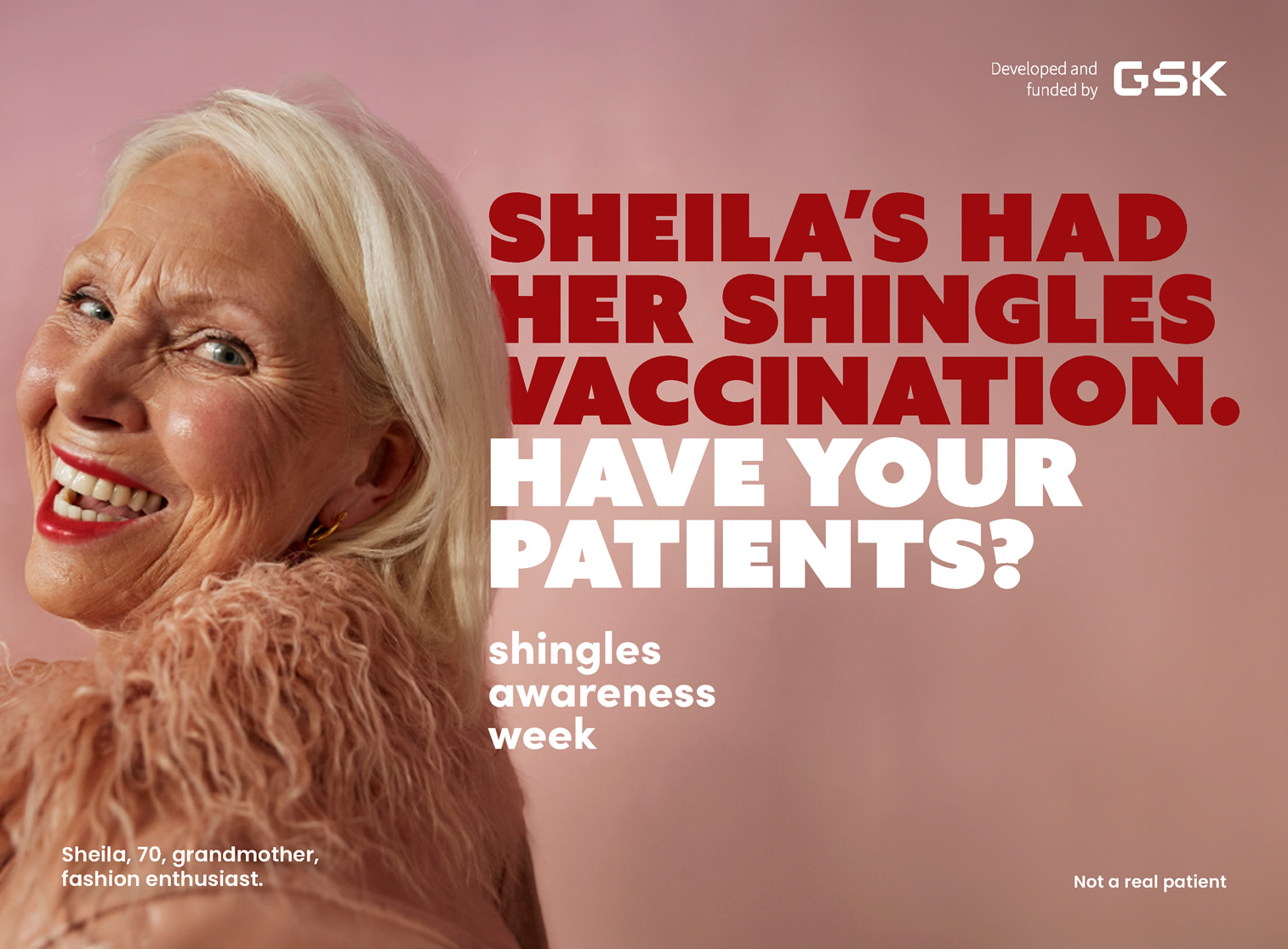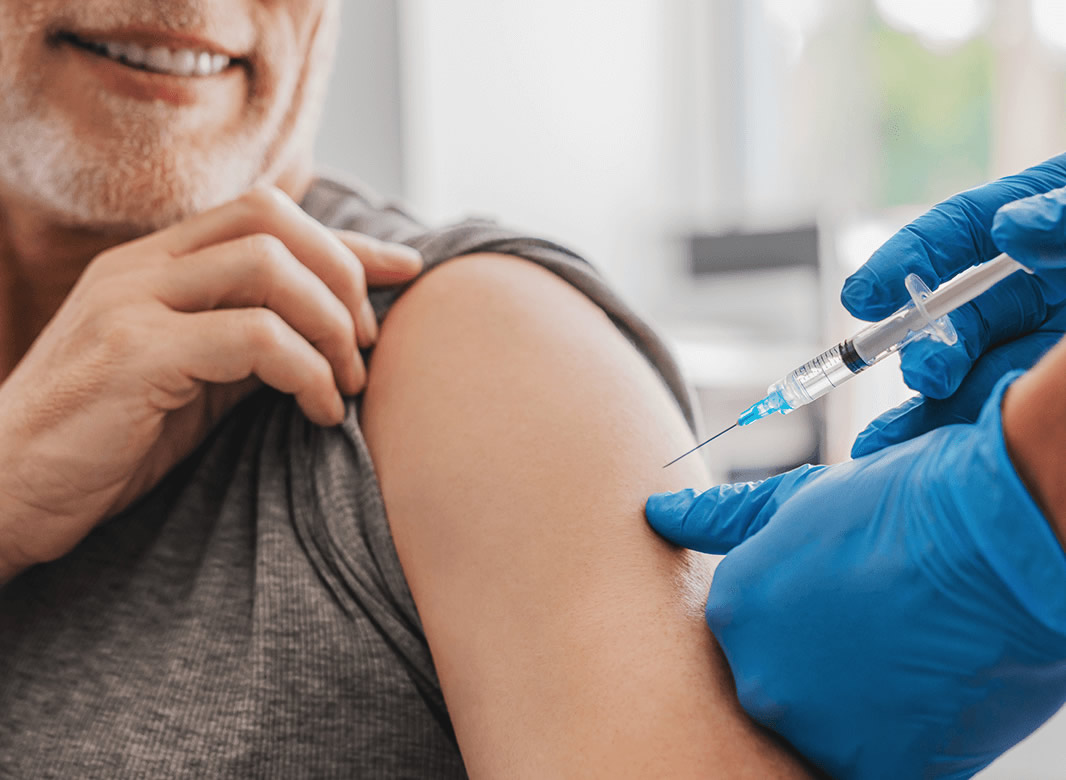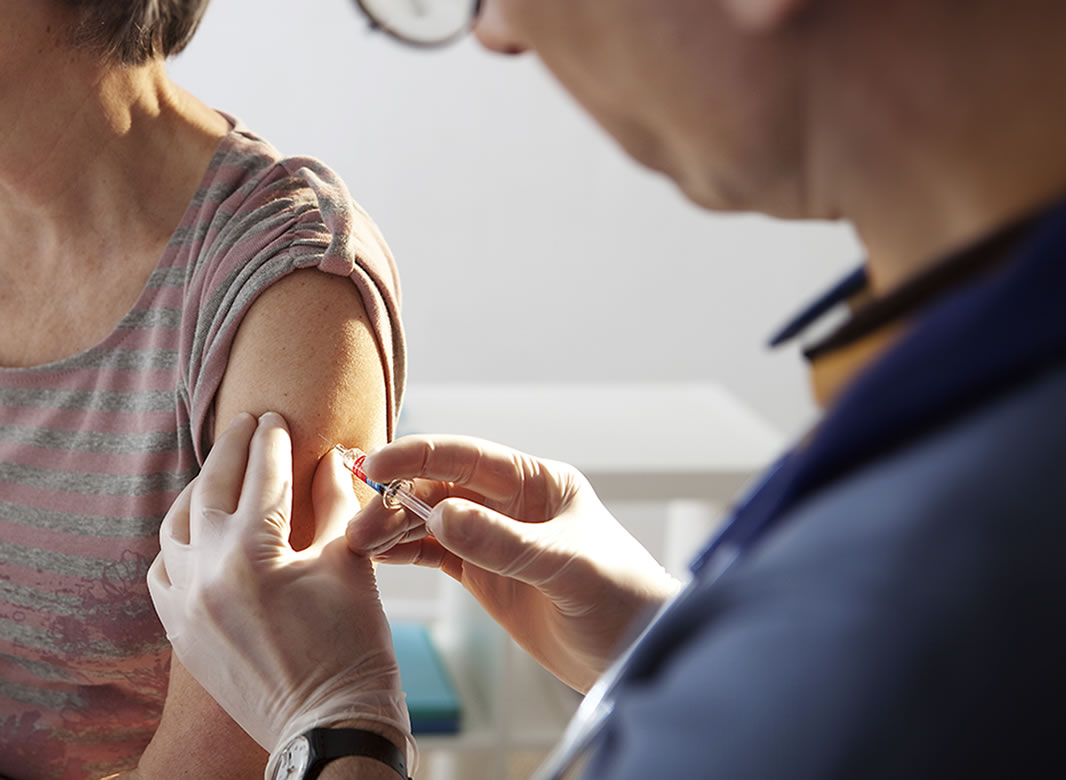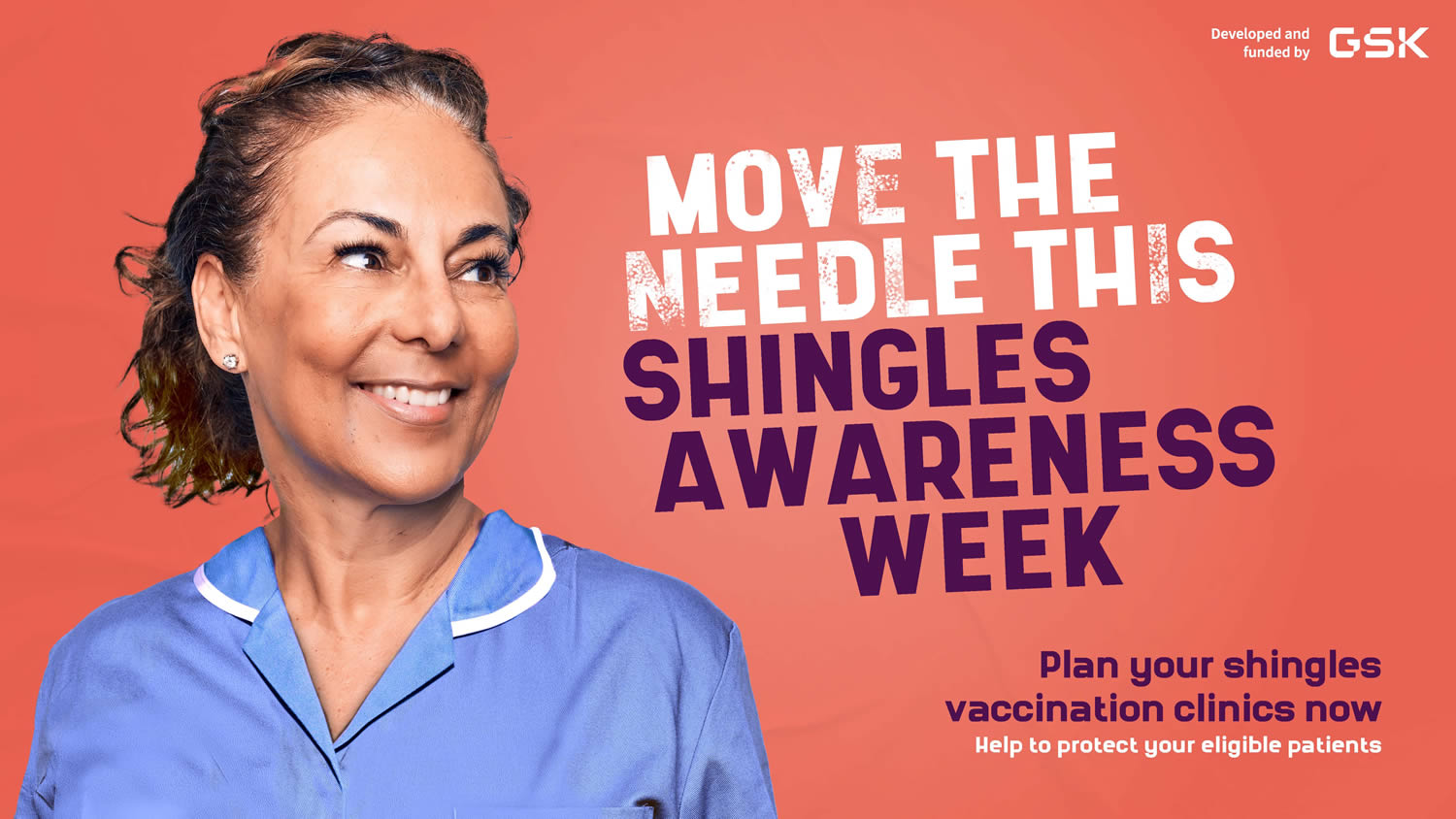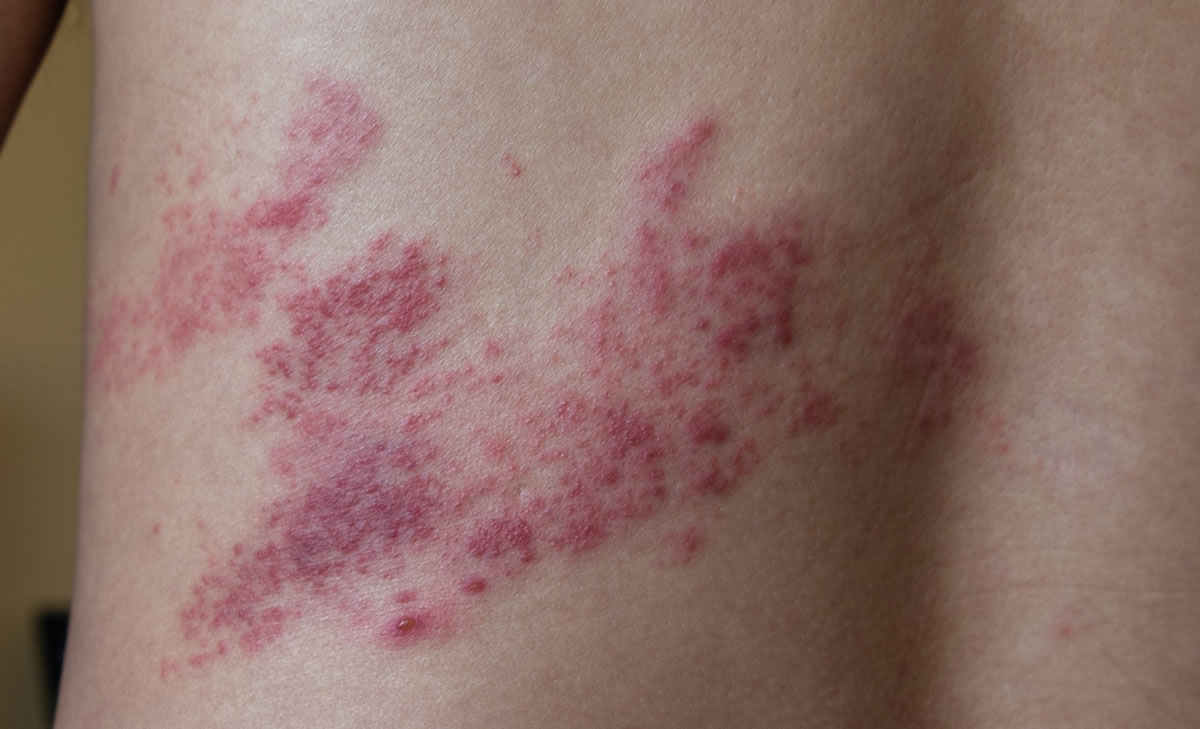
The Shingles National Immunisation Programme:
Implementation for severely immunocompromised (IC) patients
Discover tools and guidance on how to implement the programme for your vulnerable severely immunocompromised patients.
Adverse events reporting and prescribing information can be found at the bottom of the page.
Healthcare professionals have been consulted by GSK and received honorarium.
Is your practice proactively identifying and vaccinating eligible severely immunocompromised patients?
illuminate is here to help you overcome key IC implementation challenges.
Eligible severely immunocompromised patients
(*As defined in the Green book)
Individuals receiving stem cell transplant
18-49
- Receiving an allogeneic or an autologous stem cell transplant
- Receiving CAR-T (chimeric antigen receptor T-Cell) therapy
Individuals with primary or acquired immunodeficiency states
18 and over
- Acute and chronic leukaemias, and clinically aggressive lymphomas (including Hodgkin’s lymphoma), who are < than 12 months since achieving cure
- Under follow up for chronic lymphoproliferative disorders including haematological malignancies such as indolent lymphoma, chronic lymphoid leukaemia, myeloma, Waldenstrom’s macroglobulinemia and other plasma cell dyscrasias (N.B: this list not exhaustive)
- Immunosuppression due to HIV/AIDS with a current CD4 count of below 200 cells/μl.
- Primary or acquired cellular and combined immune deficiencies - those with lymphopaenia (<1,000 lymphocytes/ul) or with a functional lymphocyte disorder
- Received an allogeneic or an autologous stem cell transplant in the previous 24 months
- Received a stem cell transplant more than 24 months ago but have ongoing immunosuppression or graft versus host disease
Individuals on immunosuppressive or immunomodulating therapy
18 and over
- Receiving or have received in the past 6 months immunosuppressive chemotherapy or radiotherapy for any indication
- Receiving or have received in the previous 6 months immunosuppressive therapy for a solid organ transplant
- Receiving or have received in the previous 3 months targeted therapy for autoimmune disease, such as JAK inhibitors or biologic immune modulators including:
- B-cell targeted therapies (including rituximab but for which a 6 month period should be considered immunosuppressive), monoclonal tumor necrosis factor inhibitors (TNFi), T-cell co-stimulation modulators, soluble TNF receptors, interleukin (IL)-6 receptor inhibitors
- IL-17 inhibitors, IL 12/23 inhibitors, IL 23 inhibitors (N.B: this list is not exhaustive)
Individuals with chronic immune mediated inflammatory disease who are receiving or have received
18 and over
- Moderate to high dose corticosteroids (equivalent ≥20mg prednisolone per day) for more than 10 days in the previous month
- Long term moderate dose corticosteroids (equivalent to ≥10mg prednisolone per day for more than 4 weeks) in the previous 3 months
- Any non-biological oral immune modulating drugs e.g. methotrexate >20mg per week (oral and subcutaneous), azathioprine >3.0mg/kg/day; 6-mercaptopurine >1.5mg/kg/day, mycophenolate >1g/day) in the previous 3 months
- Certain combination therapies at individual doses lower than stated above, including those on ≥7.5mg prednisolone per day in combination with other immunosuppressants (other than hydroxychloroquine or sulfasalazine) and those receiving methotrexate (any dose) with leflunomide in the previous 3 months
Individuals who have received a short course of high dose steroids (equivalent >40mg prednisolone per day for more than a week) for any reason in the past month
18 and over
Eligible severely immunocompromised patients1*
(As defined in the Green book)
Individuals receiving stem cell transplant
Individuals with primary or acquired immunodeficiency states
Individuals on immunosuppressive or immunomodulating therapy
Individuals with chronic immune mediated inflammatory disease who are receiving or have received
Individuals who have received a short course of high dose steroids (equivalent >40mg prednisolone per day for more than a week) for any reason in the past month
18 and over
18 and over
18 and over
18 and over
18 and over
- Receiving an allogeneic or an autologous stem cell transplant
- Receiving CAR-T (chimeric antigen receptor T-Cell) therapy
- Acute and chronic leukaemias, and clinically aggressive lymphomas (including Hodgkin’s lymphoma), who are < than 12 months since achieving cure
- Under follow up for chronic lymphoproliferative disorders including haematological malignancies such as indolent lymphoma, chronic lymphoid leukaemia, myeloma, Waldenstrom’s macroglobulinemia and other plasma cell dyscrasias (N.B: this list not exhaustive)
- Immunosuppression due to HIV/AIDS with a current CD4 count of below 200 cells/μl.
- Primary or acquired cellular and combined immune deficiencies - those with lymphopaenia (<1,000 lymphocytes/ul) or with a functional lymphocyte disorder
- Received an allogeneic (cells from a donor) or an autologous (using their own cells) stem cell transplant in the previous 24 months
- Received a stem cell transplant more than 24 months ago but have ongoing immunosuppression or graft versus host disease
- Receiving or have received in the past 6 months immunosuppressive chemotherapy or radiotherapy for any indication
- Receiving or have received in the previous 6 months immunosuppressive therapy for a solid organ transplant
- Receiving or have received in the previous 3 months targeted therapy for autoimmune disease, such as JAK inhibitors or biologic immune modulators including:
- B-cell targeted therapies (including rituximab but for which a 6 month period should be considered immunosuppressive), monoclonal tumor necrosis factor inhibitors (TNFi), T-cell co-stimulation modulators, soluble TNF receptors, interleukin (IL)-6 receptor inhibitors
- IL-17 inhibitors, IL 12/23 inhibitors, IL 23 inhibitors (N.B: this list is not exhaustive)
- Moderate to high dose corticosteroids (equivalent ≥20mg prednisolone per day) for more than 10 days in the previous month
- Long term moderate dose corticosteroids (equivalent to ≥10mg prednisolone per day for more than 4 weeks) in the previous 3 months
- Any non-biological oral immune modulating drugs e.g. methotrexate >20mg per week (oral and subcutaneous), azathioprine >3.0mg/kg/day; 6-mercaptopurine >1.5mg/kg/day, mycophenolate >1g/day) in the previous 3 months
- Certain combination therapies at individual doses lower than stated above, including those on ≥7.5mg prednisolone per day in combination with other immunosuppressants (other than hydroxychloroquine or sulfasalazine) and those receiving methotrexate (any dose) with leflunomide in the previous 3 months
*This summary has been independently created by GSK based on information found in the Green book. Refer to full recommendations for further details.
What should I do if I am unsure if my patient is eligible?
Refer to the Green book and engage with other health care professionals either within the practice, such as GPs, or your Regional Screening and Immunisation Team who may be able to provide guidance. Any relevant SPCs should also be consulted and a full clinical review of your patient should be carried out.
System Searches for Patient Identification
Are you experiencing difficulties in running searches that capture eligible severely IC patients for a shingles vaccination under the NIP?
The System Searches for Patient Identification consists of a GSK-owned automated search file for eligible severely immunocompromised patient identification which captures 8000+ SNOMED codes from the 2024-25 NHS Digital shingles vaccination programme business rules, change logs and expanded cluster list.
It has been designed to be easily implemented. These searches will import the relevant search criteria into your existing electronic health record (EHR) system allowing you to simply run the search for eligible patients.
The system searches have been developed by GSK in partnership with Interface Clinical Services.
The search criteria reflects the Shingles National Immunisation Programme guidance as per the Greenbook Chapter 28a. The system searches do not make clinical decisions and are not intended to replace individual clinical judgement of the HCP using the search outputs. Clinical review is required of the lists created. The outputs are reliant on the accuracy of electronic health record (EHR) data and patient coding. The relevant Summary of Product Characteristics (SmPC) should be consulted when making treatment decisions for individual patient’s management.
The system searches have been created to identify patients who are eligible for their first dose of shingles vaccination only.
3 simple steps:
Download the system searches and user guide relevant for your system
Import to your practice’s system
Run search to see your IC patient list
These search files have been created based on codes from the 2024-2025 NHS Digital shingles vaccination programme business rules, change logs and expanded cluster list. These searches are designed to be used up until 31st August 2025.
As patients become eligible for vaccination due to age, medication or medical condition ensure you re-run this search frequently
Download the System Searches for Patient Identification now:
These files have been updated for 2024-2025 and should replace the 2023-2024 versions that you may have downloaded and saved to your practice computer.
Download the System Searches that are compatible with your practice EHR systems. The files downloaded will be system specific search files, as well as, a user guide that provide instructions for use.
These files will either be saved directly into your downloads, or will open as new browser tabs (which may require accepting pop-ups). To save the files that open as new tabs, right click on the page and select 'Save as'.
Did you know there are approximately 500,000+ severely immunocompromised (IC 50 and over) patients in the UK that may be eligible for vaccination against shingles?2*
*This data was produced by using UK Longitudinal Patient Data (LPD) from May 2023 and derived via IC coding from GP records to produce a minimum estimate for the number of patients who are severely immunosuppressed according to the Green book definition.
When should my eligible severely immuncompromised patients receive their shingles vaccination?
Eligible individuals who have not previously been vaccinated should commence a course of SHINGRIX (herpes zoster vaccine recombinant, adjuvanted) at the earliest opportunity preferably one month before starting immunosuppressive therapy (but at least 14 days if one month is not possible)1.
SHINGRIX is given according to a 2-dose vaccination schedule 1,2.
*Please refer to your local guidelines for further information on dosing
I need further support in severely IC patient eligibility or identification
To request support from a representative, please fill out the form below stating your request. The form is GSK-owned.

Support from GSK
We’re on hand to answer any questions you may have on the Shingles National Immunisation Programme. Get in touch with us at any point.
References
- UKHSA Green Book: Shingles (herpes zoster): the green book chapter.
- SHINGRIX. Summary of Product Characteristics (United Kingdom) August 2025.
September 2025 | PM-GB-AVU-WCNT-240002 (V6.0)
For the SHINGRIX® (herpes zoster vaccine, recombinant, adjuvanted) prescribing information, click here.


